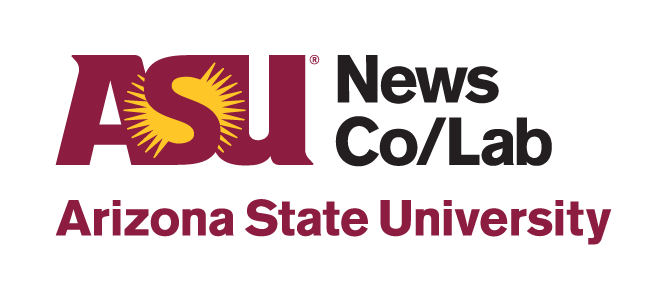News Co/Lab news: Science and medicine

In the modern world, you’re unusual, to put it mildly, if you haven’t looked online for information about a medical issue. And if you have, you are aware — or should be — of the avalanche of junk science, sleazy marketing, and other questionable practices you’re likely to encounter.
You’ve been hearing again and again about the misinformation in the political sphere. That’s appropriate given given what happened last year and continues to happen to our civil discourse.
But we need to challenge misinformation in other contexts, too. Nowhere may this be more important than in science and medicine, where believing BS can threaten your health, or even your life.
The Rita Allen Foundation agrees. And I’m honored, as co-founder and director of the just-launched News Co/Lab at Arizona State University’s Walter Cronkite School of Journalism and Mass Communication, that the foundation has awarded us a $150,000 grant to work on this problem.
This is the third publicly announced News Co/Lab grant. The first two, announced last month, were launch funding from Facebook and a follow-on grant from the News Integrity Initiative. With the resources from those earlier grants, we are launching a project to work with newsrooms and communities, with the goal of raising local “news awareness” in part by helping news organizations be more transparent and collaborative with members of the communities they serve. (Look for another post soon about the progress we’re making on that.)
The Rita Allen Foundation funding will let us focus one project more specifically on science and medicine. We have a lot of ideas on how to help the public become better at applying critical thinking — the essential principle behind what’s called “media literacy” (and its news-literacy subcategory) to this sphere.
But we plainly don’t know everything, much less have some magic wand to wave over the information ecosystem to make things better. We’ll initially be gathering data and examples of the good and bad in science/medical information, especially online. And then, among other activities, we’ll be working with educators, including colleagues at ASU, to create “modules” that can become part of school curricula.
According to the Pew Research Center, “A majority of Americans rely on general outlets for science news but more say specialty sources get the facts right about science.”
That doesn’t always produce top-flight knowledge. Scientist Jonathan Eisen, at the University of California at Davis, recently slammed the famed Cleveland Clinic for what he called a grossly misleading press release that contributed to bad journalism.
And an ASU colleague took journalists to task for turning a student researcher’s report on a potential super-volcano under Yellowstone National Park into a seemingly imminent threat. “There is no evidence that Yellowstone will erupt in the near future, or in a big eruption,” said Christy Till, an assistant professor in ASU’s School of Earth and Space Exploration. “It may never erupt ever again!”
While we’ll initially focus on school-curriculum ideas, we also hope to work with librarians, journalists, and technologists. As the name of our lab implies, we’re into collaboration.
The goal with this, and other projects, is simple: to improve the information ecosystem. We want to make things better for everyone — except the bad actors.
Dan Gillmor is a longtime participant in new media and digital media literacy. He’s author of the 2009 book, Mediactive, discussing media literacy in the digital age from a journalist’s perspective.
